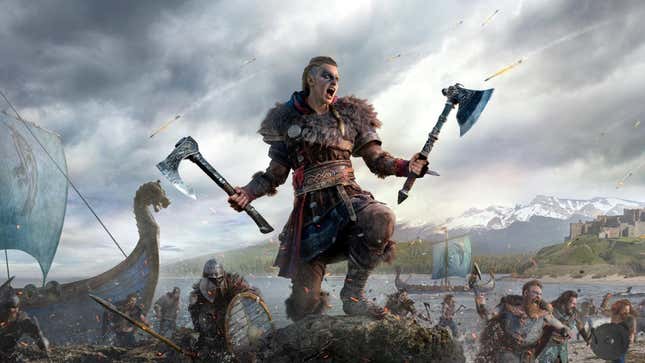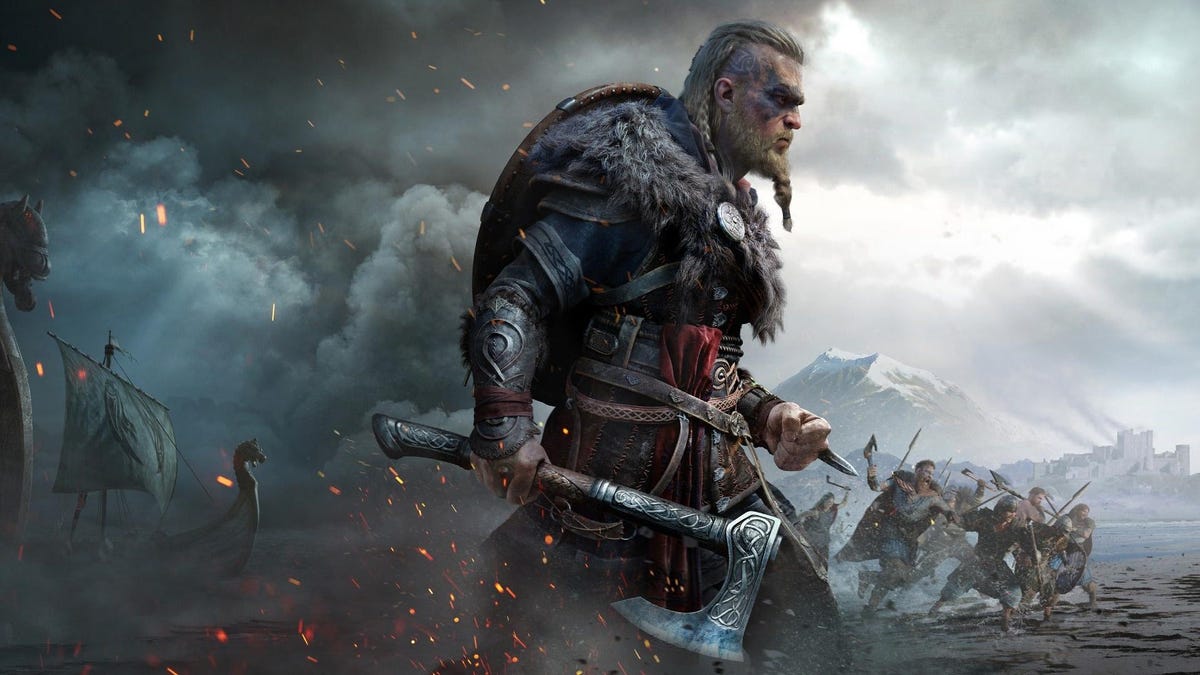
Assassin’s Creed: Valhalla’s Viking protagonist has a fair bit of baggage. Eivor is one of the more malleable playable characters in the series, as Valhalla is pretty entrenched in the choice-driven RPG genre that Assassin’s Creed has shifted into of late. But Eivor is also one of the weirdest attempts at dealing with canon while giving the player some freedom to make the character their own. Because of Assassin’s Creed’s mix of mythology and science fiction, Eivor is an incarnation of Odin, the Norse god. But you can play as either a male or female version of Eivor…only to find out that the male version is just Odin’s DNA being projected through the Animus.
Ubisoft put this in as a solution to making a specific Eivor “canon,” because now no matter what you do, Eivor was a woman and her male counterpart is just her previous iteration’s DNA confusing the virtual reality technology. But all this late-game twist does is make you ask why Assassin’s Creed can’t have a sole woman as its lead. It even ends up complicating things like its slew of gay romantic relationships for a male Eivor, asserting that they were secretly heterosexual ones the whole time. Valhalla’s choice-driven structures invite the player to define who Eivor can be, only to pull the rug out from under them in the eleventh hour.
Pushing all the baggage away with all your might, Eivor is a very likable protagonist. She’s caring, loves her clan, and is, interestingly enough, pretty separate from the usual Assassins vs. Templars storyline. I appreciate some of the interesting narrative swings Ubisoft took with her, but Eivor ends up being a case study in how the modern-day framing of historical fiction is both an asset and a disadvantage to the Assassin’s Creed series this many years in. — Kenneth Shepard

